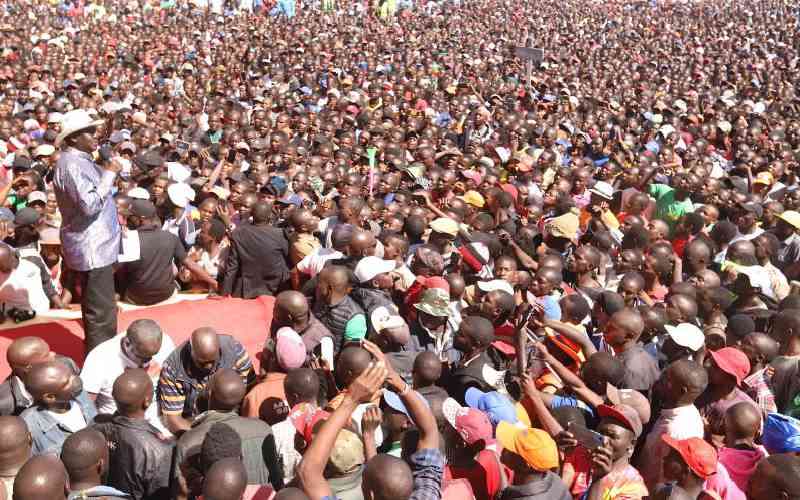×
The Standard e-Paper
Smart Minds Choose Us

Opposition leader Raila Odinga has faced off with three Kenyan presidents and got his reward in each duel. Although the veteran opposition leader has unsuccessfully contested the presidency five times, he has mastered the art of remaining politically relevant on the national arena for over two and a half decades.
He has also been a thorn in the flesh of the administrations of former Presidents Daniel arap Moi, Mwai Kibaki and Uhuru Kenyatta, forcing the three to accommodate him despite initially not seeing eye to eye.